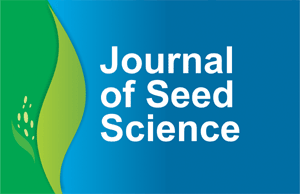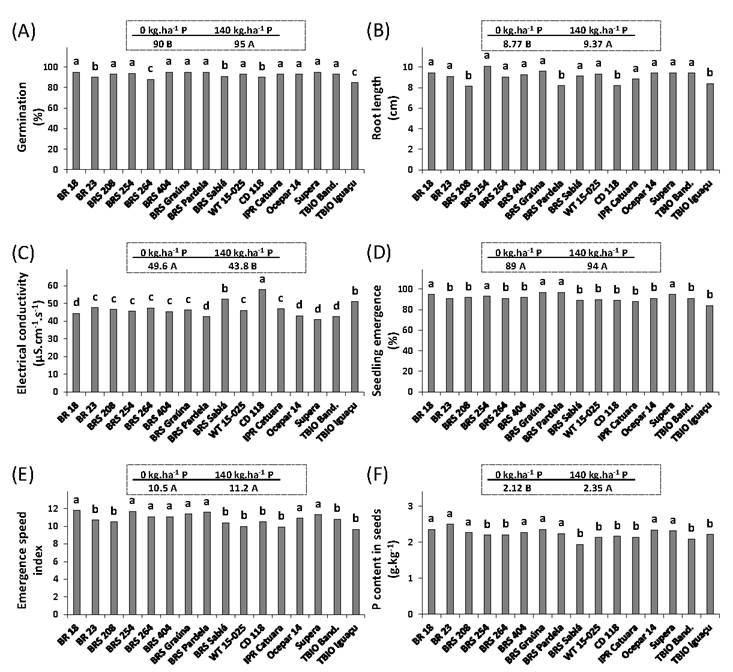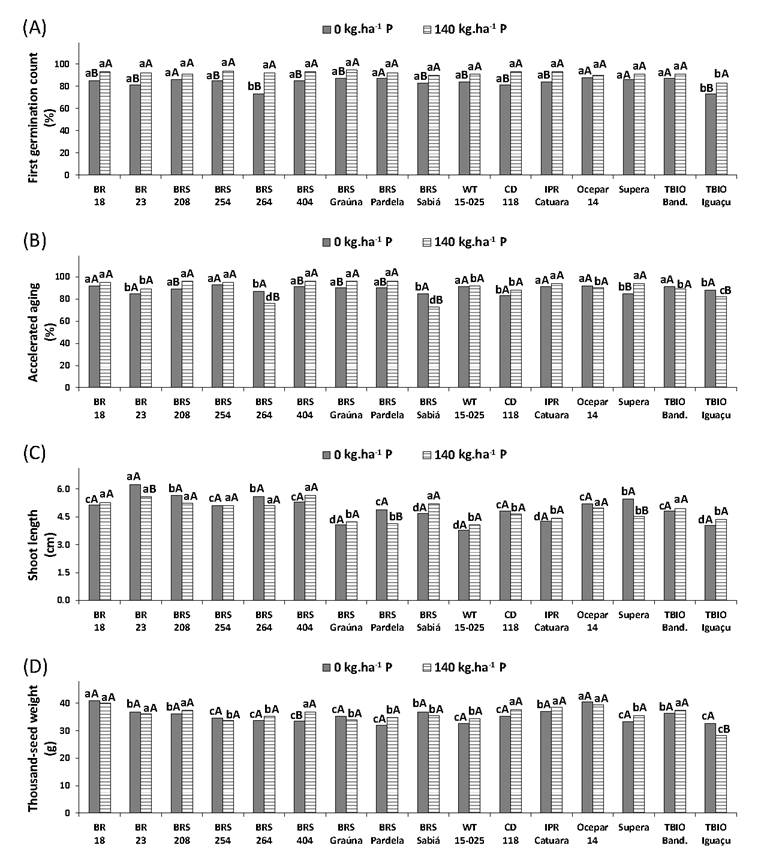Abstract:
Mineral nutrients play an important role in the composition of seeds, influencing the germination rate and the production of vigorous seedlings, which is fundamental for the establishment of the plant stand and crop yield. This work aimed to evaluate the effect of phosphate fertilization on phosphorus (P) content and the physiological quality of seeds of wheat cultivars. A 2 × 16 split plot design was used, with two rates of P (0 and 140 kg.ha-1) and 16 wheat genotypes (cultivars BR 18, BR 23, BRS 208, BRS 254, BRS 264, BRS 404, BRS Graúna, BRS Pardela, BRS Sabiá, WT 15025, CD 118, IPR Catuara, Ocepar 14, Supera, TBIO Bandeirante and TBIO Iguaçu). The evaluation includes: first count, germination, accelerated aging, seedling emergence and length, electrical conductivity, emergence speed index, P content in seeds, and thousand-seed weight. The data of P rates and wheat genotypes were subject to analysis of variance and to the comparison of means by the F-test and Scott-Knott test, respectively. The seeds of BR 18 and Ocepar 14 showed higher physiological quality, whereas the seeds of TBIO Iguaçu, CD 118, and BRS Sabiá showed lower vigor. Phosphate fertilization provides the production of wheat seeds with higher P content and physiological quality, but it does not influence the thousand-seed weight of most wheat cultivars.
Index terms:
Triticum aestivum L.; phosphorus; macronutrient; germination; vigor

 Thumbnail
Thumbnail
 Thumbnail
Thumbnail
 Thumbnail
Thumbnail


